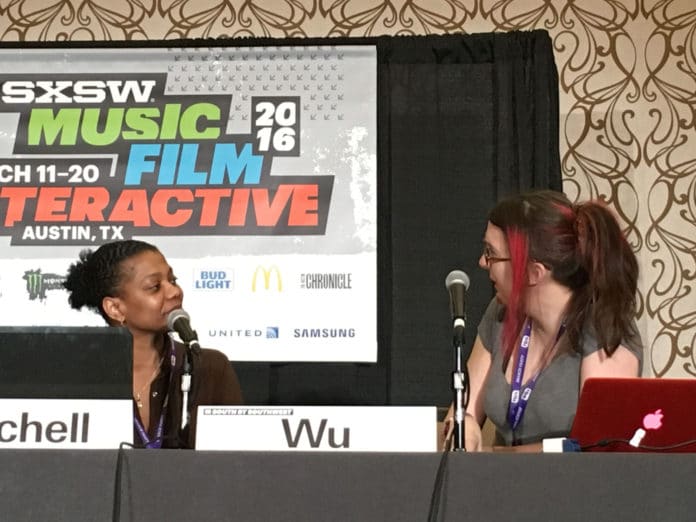AUSTIN, Texas — Nobody made a scene. And nobody wanted to talk about Gamergate.
For all the concerns that it would be disrupted by violent hecklers, Saturday’s summit at the South By Southwest festival on online harassment was a largely peaceful affair; the only protests you could hear were people complaining, half-seriously, about the security team’s very thorough bag searches.
There were other precautions, too: Police cars parked outside the conference center, taser-wielding officers patrolling the ballrooms, large signs warning you not to leave your belongings unattended. It felt a little as though the place was being run by TSA-lite.
The show of force aimed to ease concerns about a potential physical confrontation between some of the day’s high-profile panelists – such as game developers Brianna Wu and Randi Harper – and their biggest critics. But their opponents stayed away, and the panelists studiously skirted the caustic online battles that gave rise to that particular event in the first place.
“I don’t want to make this a Gamergate panel,” Wu said in her opening remarks.
Other session moderators seemed to take a similar cue, steering clear of any specific mentions of Gamergate. And the result was a day-long series of talks that were less about the problem of online harassment than the emerging solutions to it.
Wu is among the women in the gaming industry who have faced multiple death threats and harassment in the Gamergate controversy. Gamergaters have said they are pressing for stronger ethics between journalists and game-makers. But some in the movement have posted vile, anonymous messages online, threatening rape and murder against women journalists and game developers.
Activists and tech companies have been investigating the role that bystanders and communities can play in limiting toxic, hateful interactions on the Internet. For example, a startup called Activate Your Squad – the winner of a recent Google- and Facebook-sponsored hackathon – gives victims the ability to respond to online attacks by tapping a button. The button sends a notification to friends and supporters in the victim’s social network who’ve joined his or her “squad,” and pre-loads a message of support that the squad can post on social media to counter the abuse.
Some video game developers, such as the ones who produce the popular online game League of Legends, have allowed players to determine as a group whether a given piece of reported content is indeed punishable harassment, said Katherine Cross, a doctoral student in sociology at the CUNY Graduate Center. Reviews of the “tribunal” system have shown it to be even tougher on abuse than the game company itself, she said.
“There’s research out there saying that when it comes to bullying, the overlooked but very important party is the bystander,” said Facebook’s head of policy management, Monika Bickert. “If we can find ways to help people feel motivated and empowered to speak on behalf of others, that’s going to go a long way.”






